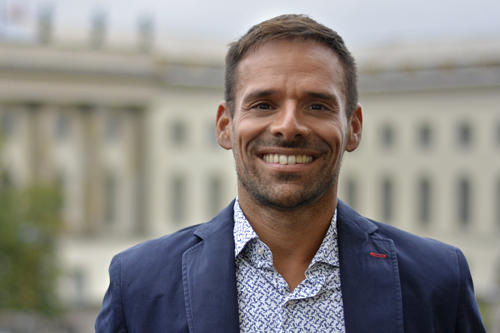Connecting Berlin to the World: How BUA Drives International Research
Internationalization is a central objective of the Berlin University Alliance, bringing together the strengths of its four partner institutions to expand their global reach. The division sets the framework for international strategies, fosters strategic partnerships with leading institutions such as Oxford, Melbourne, and Singapore, and initiates funding programs to support researchers. The area is guided by the Steering Committee, composed of one expert from each partner: Herbert Grieshop (FU), Yoan Vilain (HU), Ulrike Hillemann-Delaney (TU), and Magnus Rüde (Charité). Its overarching mission is to pool BUA's resources effectively, allowing excellent research to flourish in a global network while positioning Berlin as a highly attractive destination for science and innovation worldwide.
Berlin’s Universities in the Excellence Alliance: United on a Global Stage
Yoan Vilain has dedicated his career to promoting scientific collaboration across Europe and beyond. As Presidential Commissioner for International Affairs and Europe at Humboldt University of Berlin, he sees internationalization as a core strategic priority for the Berlin University Alliance (BUA). “Research is inherently international,” he notes, “because we tackle global challenges and foster cross-border exchange of ideas.”
Vilain highlights the added value of the alliance’s strategic partnerships with Oxford, Melbourne, and Singapore. These relationships not only strengthen ties with leading institutions worldwide but also enhance collaboration among the BUA partners themselves. “We’ve established structured doctoral programs and research projects, for example, between Singapore, HU, and Charité, or across the three universities in partnership with the Global South,” he explains. “Through these initiatives, we’ve created stronger integration within Berlin—something a single university could not achieve on its own.”
He sees an even more ambitious dimension of internationalization in ecosystem-to-ecosystem collaboration, such as the ongoing plans between Berlin and São Paulo. “We’re in close dialogue with several research institutions there,” Vilain says. “This allows us to pilot a new type of partnership: collaboration not just between individual institutions, but between entire research ecosystems, potentially even around a shared research focus.” Just recently, BUA and the Fundação de Amparo à Pesquisa do Estado de São Paulo (FAPESP) signed a Memorandum of Understanding together.
For his outstanding commitment to academic exchange, particularly between France and Germany, he was honored in June 2025 with the Ordre des Palmes Académiques—one of France’s highest distinctions for services to education and science. “It was completely unexpected, because you don’t apply for this award; you get nominated,” Vilain recalls. The recognition was particularly moving for him, given his non-academic background: “I’m the only person in my family to have attended university and built an academic career.” He also credits Humboldt University for the honor. “The university gave me something that I am happy to give back today in my role.”

